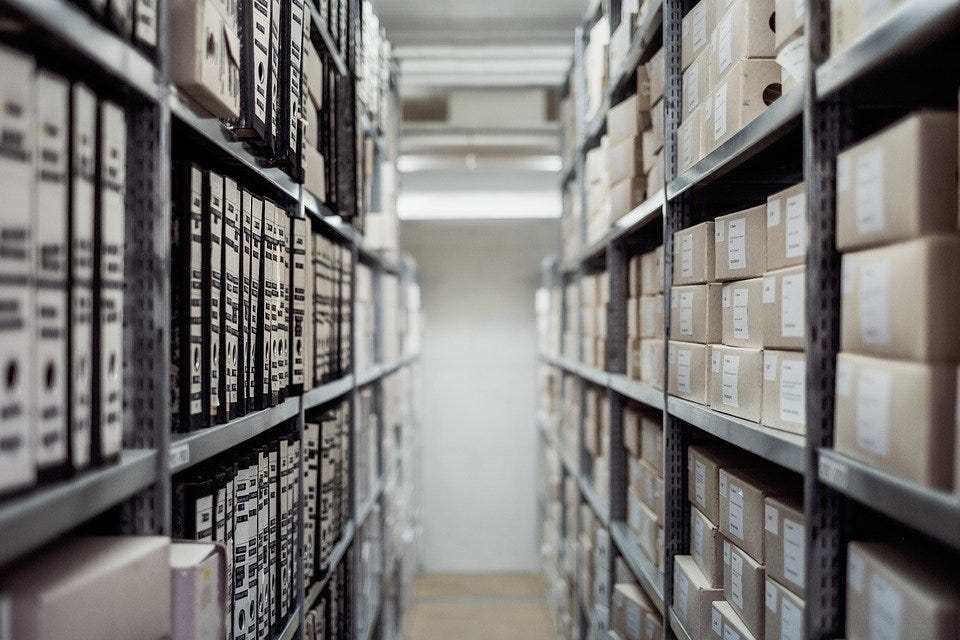
Where media might be understood to be about the present and real-time nowness, they also have deep tangles with the past. It could even be said that the past is making a comeback.
The accumulation of data has implications for the way that the past connects into the present. There are perhaps two main questions here. The first is about how we do a history of data. This would ask how it is possible to understand where these data assemblages have come from, how data processes have become established and why data are gathered and classified in certain ways. The second question is about how data give us our past. This would be to ask how the past is being mediated by data and how biographies and past moments are turned into data. So, one approach is to narrate data and the other is to explore how data are used to narrate. On the second of these questions, I've got more news coming soon, which I'll explain in a future newsletter.
This current issue of the newsletter has links to the history of data gathering, the algorithmic sorting of biographical moments and the fictional past in technological ghost narratives. A bit of a thematic newsletter this time: three types of data spectres. It seems that the temporal dimensions and reconfigurations that data make possible will become increasingly important. How the past is converted or abstracted into data has implications for how the present is ordered. Also, how data have been archived and stored is part of that retelling of the past, bringing the politics of the history of data archiving as well as the archived data themselves into the present (and the future).
Filling the gaps in forms…
My article ‘A history of the data present’ has just been published in the journal History of the Human Sciences. Here's the opening paragraph:
Watching TV I start to wonder if I should be more mindful of my credit score. Am I neglecting my own future? Am I risking the viability of my ‘data shadow’? Am I not being attentive enough to my data? The often repeated advert suggests to me that my credit score – as a representation of my riskiness and worthiness – is something that I should be spending time tracking, monitoring, and maintaining. The implication is that I should actively learn how to manage this metric in order to maximise the opportunities presented to me by the capitalist structures of credit and debt with which I am confronted.
The article is behind a paywall, but if you want to read it and you can't get access just reply to this email and I'll send over a PDF.
Algorithmic stories…
Whilst on the topic of how data reshapes the relations between the past and present I'd recommend Ben Jacobsen's new article ‘Algorithms and the narration of past selves’ in Information, Communication & Society. The article explores how algorithmic systems assemble for us a version of our own pasts and present them back to us. Ben has been developing work on how algorithms mediate memory through memory features. This article looks at how the past is arranged into narratives by algorithmic systems.
Picturing archives…
And then there are the archival structures in which data are stored. Not dusty archives here though, but shiny distributed tech platforms. This recent article by Angela Woodall and Sharon Ringel is an interesting examination of the trust placed in blockchain. The article explores the kind of ‘archival imaginary’ in blockchain discourse and the ideas it presents around the ability to preserve data.
Machines in the ghost…
In this podcast the writer John Lanchester talks about his collection of short stories on technology. Inspired by MR James, they are spooky and unsettling tales of technology, devices and media. The podcast outlines some of the themes, inspirations and the writing process behind it. This doesn't quite deal directly with data pasts but it does give a hauntological take in which technological spectres of contemporary media hover around us.
Forget it…
This reminded me of this article by Martin Dodge and Rob Kitchin on pervasive computing and the politics of forgetting.
Two other things…
It's not about data and history and I've not given many TV suggestions on this newsletter in the past, but I've watched The Rap Game UK this week. The full first series is available in full on BBC iPlayer and the first episode of series 2 is there now too. A new episode will be released every Wednesday.
Finally, here is an interview with Ian Rankin in the Big Issue North (I'd recommend subscribing to the magazine too).
